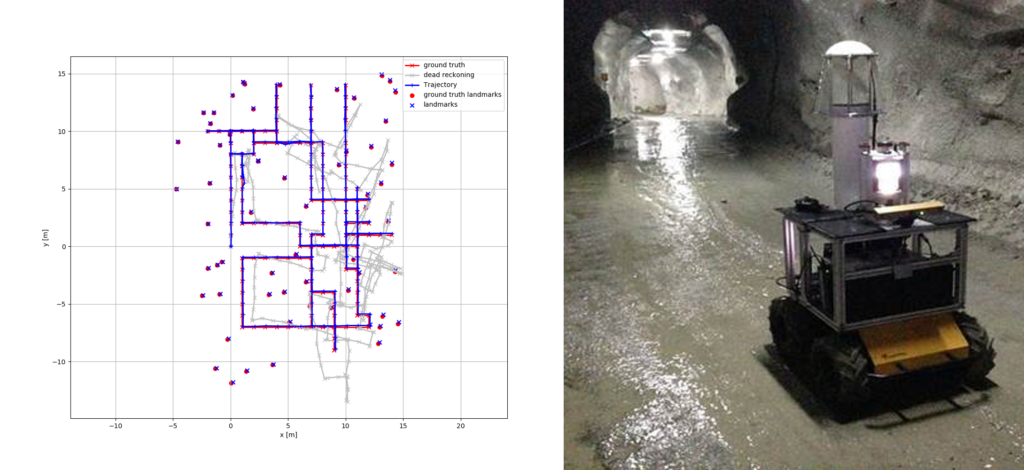When: Thursday 9th of September, 10 am AEST
Where: This seminar will be presented online via Zoom, RSVP here.
Speaker: Prof. Martin Adams (Universidad de Chile)
Title: State Estimation with Random Finite Sets


Abstract:
The application of random sets in multi-target tracking has led to the development of Finite Set Statistics, which provide the basis for filters such as the Probability Hypothesis Density (PHD) filter and more recently the Generalized Labelled Multi-Bernoulli (GLMB) filter, which recently attracted considerable research interest as well as deployment in commercial applications. Feature based Simultaneous Localization And Mapping (SLAM) algorithms have traditionally been based on Random Vectors (RVs) to represent robot poses (or its trajectory) and map feature positions. Alternatively, the problem can be formulated using Random Finite Sets (RFSs). The use of RFSs yields a general measurement likelihood which allows data association and map management routines to be a native part of the RFS approach, effectively combining the SLAM back and front ends into a single, joint estimation framework. RFS formulations also allow the joint consideration of detection and clutter statistics within the estimator.
A Bayesian RFS based solution to SLAM, the PHD filter will be presented and its advantages over Bayesian non-RFS approaches will be demonstrated. To encompass the advantages of more recent Maximum likelihood (ML) batch approaches, which use sparse matrix methods such as the g2o solver, we propose approximating the SLAM state as a mixed distribution. This distribution jointly represents the vector-valued trajectory and the RFS-valued map, and is referred to as the Vector-Generalized Labeled Multi Bernoulli (V-GLMB) distribution. This yields a hybrid RFS-RV SLAM solution, which yields accurate results, while circumventing the need for fragile data association methods. Therefore, a solution which combines the SLAM back and front ends into a single ML estimation framework is demonstrated.
Bio:
Martin Adams is Professor of Electrical Engineering and director of the Dept. of Electrical Engineering, University of Chile. He is also a principle investigator in the industrially sponsored Advanced Mining Technology Centre (AMTC). He obtained his first degree in Engineering Science at the University of Oxford, U.K, in 1988 and continued to study for a D.Phil. at the Robotics Research Group, University of Oxford, which he received in 1992. He continued his research in autonomous robot navigation as a project leader and part time lecturer at the Institute of Robotics, Swiss Federal Institute of Technology (ETH), Zurich, Switzerland. He was employed as a Guest Professor and taught control theory in St. Gallen (Switzerland) from 1994 to 1995. From 1996 to 2000, he served as a senior research scientist in robotics and control, in the field of semiconductor assembly automation, at the European Semiconductor Equipment Centre (ESEC), Switzerland. From 2000 to 2010, he was Associate Professor at the School of Electrical and Electronic Engineering, Nanyang Technological University (NTU), Singapore. His research work focuses on autonomous robot navigation, sensing, sensor data interpretation and control, and he has published many technical papers in these fields. He has been the principle investigator and leader of many robotics and industrially sponsored projects, coordinating researchers from local industries and local and overseas universities, has served as associate editor on various journal and conference editorial boards and is currently Chair of the Robotics & Automation Chapter, Chile.
Recording:
